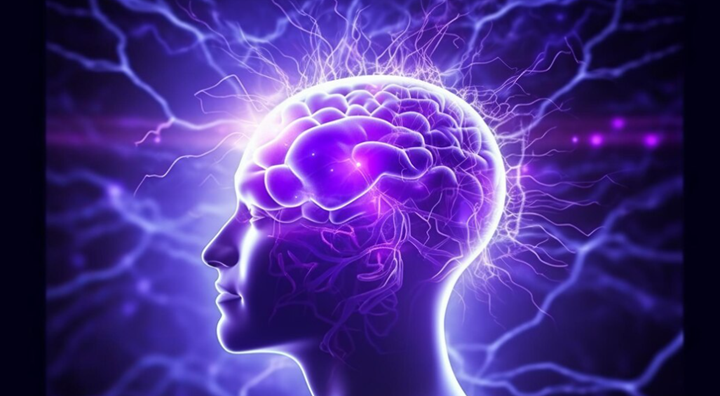Epilepsy, a chronic brain condition, involves recurring seizures, often referred to as fits. These seizures result from altered electrical activity within the brain and can vary widely based on the brain region involved.
Symptoms
Seizures, the predominant symptom of epilepsy, manifest diversely depending on the brain area impacted. Symptoms can range from loss of consciousness and convulsions (unusual jerking movements) to peculiar sensations, feelings, and behaviors.
Distinct Seizure Types
Generalized Tonic-Clonic Seizures: Formerly known as “grand mal seizures,” and are widely recognized. They commence with abrupt loss of consciousness, followed by muscle stiffening and jerking. Blueness or redness, tongue-biting, and loss of bladder control can occur. Confusion, drowsiness, memory loss, headache, and agitation may follow recovery.
Absence Seizures: Formerly called “petit mal seizures,” these brief episodes typically start in childhood. They involve staring, loss of expression, unresponsiveness, and halted activity. Eye blinking or upward movements might be observed. The person swiftly resumes activities without recollecting the seizure.
Focal Seizures: Previously termed “partial seizures,” commence in a specific brain region, affecting corresponding body parts. Movements, sensations, or behaviors can become abnormal. Levels of consciousness may vary during these seizures.
Causes of Epilepsy
Seizures can result from specific triggers or conditions, termed secondary or symptomatic epilepsy. Common causes include:
- Tumors
- Chemical imbalances (e.g., low blood sugar or sodium)
- Head injuries
- Toxic chemicals or drug abuse
- Alcohol withdrawal
- Strokes, including hemorrhage
- Birth injuries
Diagnostic Pathway: Seeking Clarity
A diagnosis of epilepsy relies on seizure history. Your doctor will gather details about your seizures and any preceding symptoms. Tests like blood tests, electroencephalograms (EEGs), and brain scans may be conducted. Abnormal findings assist in classifying the epilepsy type, although normal results do not rule it out.
Navigating Treatment Avenues
Most epilepsy cases find seizure control through antiepileptic medications and trigger avoidance. Medication type hinges on factors like age and seizure variety. Blood tests ensure proper medication levels. Emerging treatments encompass brain surgery, vagus nerve stimulation, ketogenic diets for children, and medical cannabis, which has shown promise in certain cases.
Epilepsy Treatment Options
Epilepsy treatment aims to reduce or eliminate seizures. Your plan depends on symptom severity, overall health, and response to therapy. Available treatments include:
- Antiepileptic Drugs
- Medications lower seizure frequency, and, in some cases, complete seizure cessation is observed.
- Strict adherence to the prescribed regimen is important.
- Vagus Nerve Stimulator
- Surgically placed under the chest skin.
- Electrically stimulates the neck nerve to prevent seizures.
- Ketogenic Diet
- High-fat, low-carb diet.
- Over 50% of medication-resistant children benefit.
- Brain Surgery
- Surgical removal or alteration of the seizure-causing brain area.
- Emerging Treatments
- Deep Brain Stimulation
- Minimally Invasive Surgeries
- Radiosurgery
Advancements in epilepsy treatment continue, offering hope for improved management and quality of life.
Preventing Seizures: Steps to Consider
Seizure prevention revolves around medication adherence and trigger awareness. Triggers encompass factors such as sleep deprivation, stress, hormonal changes, fever, alcohol/drug use, flashing lights, caffeine, missed meals, infections, allergies, temperature shifts, and more.
Managing Complications and Enhancing Well-Being
Epilepsy brings an increased risk of injury. Precautions around water, altered job roles, and attention to learning or concentration challenges in children are vital. Managing health, tackling anxiety or depression upon diagnosis, and discussing medication adjustments during pregnancy are pivotal.
Understanding epilepsy empowers individuals to face its challenges head-on. With proper treatment, adherence, and lifestyle adjustments, people with epilepsy can lead fulfilling lives. Stay attuned to your health, seek medical advice, and embrace the potential of better seizure control and quality of life.
